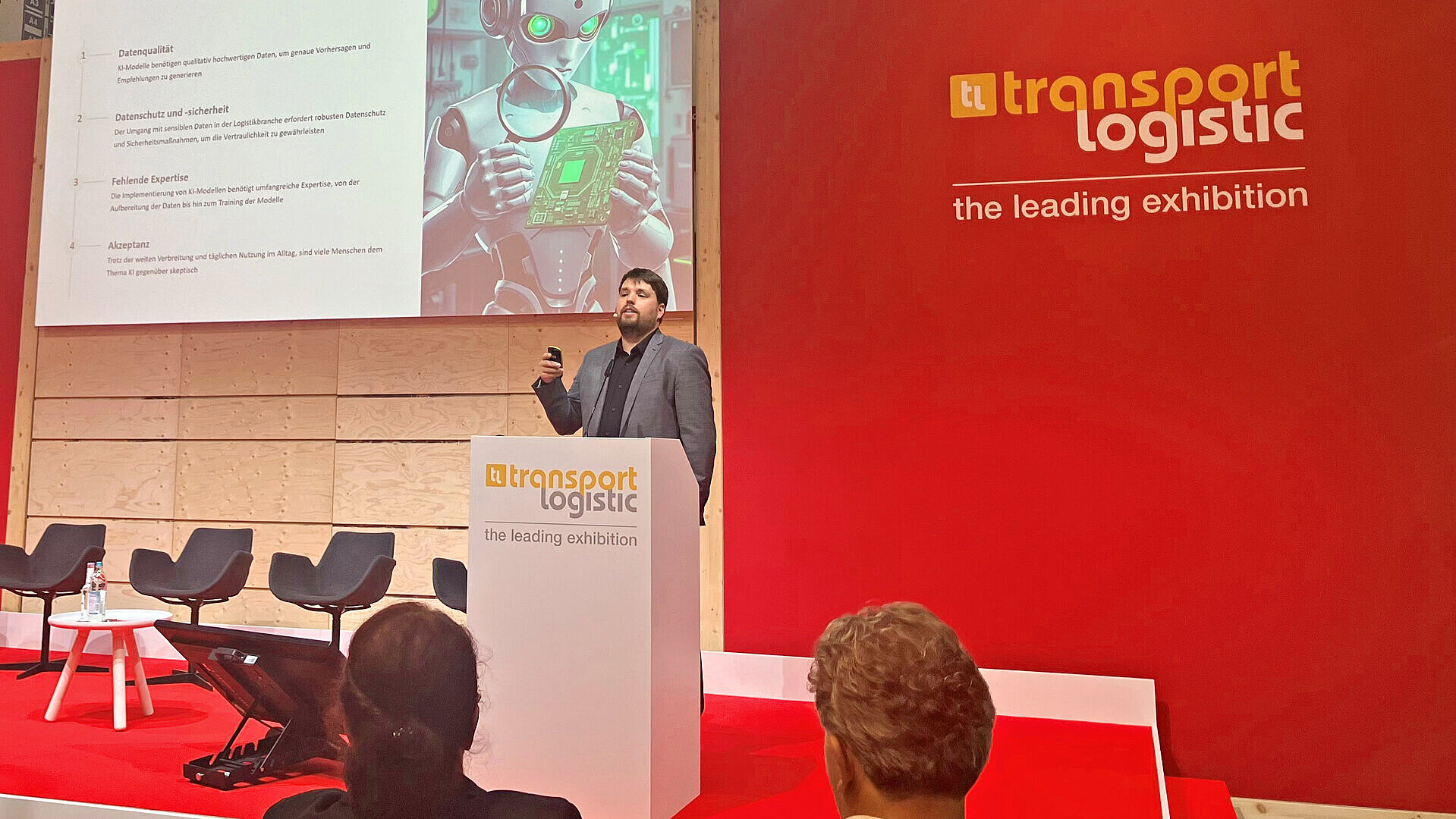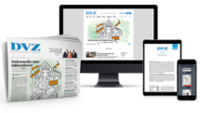
Increased efficiency is essential

Rising costs, a shrinking economy, and a customs dispute that is difficult to understand: logistics service providers are currently under more pressure than they have been for a long time. ‘In times of crisis, the first priority is always to increase the efficiency of your own processes,’ warns Thomas Krupp, Professor of Logistics Management at the Cologne University of Applied Sciences.
The university lecturer is a founding member of the Expert Council for Digital Transformation in Transport and Logistics at automotive supplier Continental, which focuses on the digitalisation of road freight transport. In view of the noticeable shortage of personnel despite low capacity utilisation in logistics networks, Krupp believes that the most important task for companies is to relieve skilled workers through IT applications. ‘This will allow them to concentrate on the really important things that are more interesting to them than pure routine tasks,’ he emphasises.
The expert committee, which was established at transport logistic in 2023, has developed concrete recommendations since the last leading trade fair for the industry, which it will now present again to the Munich audience. ‘The aim is to start with relatively simple measures that take effect immediately and have a noticeable impact,’ explains the Cologne-based professor. The council has identified bureaucratic tasks, waiting times at loading ramps and the seamless transfer of shipment data as the most important areas for action. ‘In the current market situation, we have deliberately focused on what is feasible,’ he explains. This is urgently needed in view of the almost endless possibilities.
‘Companies must not take on too many tasks at once if they do not want to trigger paralysing fears,’ explains Krupp. All too often, uncertainty leads to stagnation, according to the motto: ‘Before I make a mistake, I’d rather do nothing.’ Those who do manage to start a digitalisation project then encounter a lack of willingness to change and a high degree of resistance. Anyone who wants to make progress must involve all the players concerned to a significant extent.
Mastering complexity
‘High cost pressure makes it necessary to support employees in mastering the complexity of their tasks more easily,’ says the management expert, formulating a basic requirement. That is why one of the most important goals is to automate routine tasks as far as possible. ‘This makes it possible to process significantly more orders with the same workforce,’ says the university lecturer, highlighting the benefits.
Non-digitised dispatching, for example, is only connected to customers and drivers via telephone and requires significantly more effort to process a single shipment. In a paperless freight forwarding company, on the other hand, checking mechanisms make it much easier to avoid errors. ‘Paper has no mandatory fields,’ he says, summing up the advantages.
In addition, media-break-free collaboration also enables efficient revenue operations planning. Sales, marketing, operations and customer service, as the most important revenue-related departments, closely coordinate their processes and goals. This makes it easier to plan revenue increases and company growth and implement them more efficiently. ‘Joint planning and use of data breaks down departmental silos, standardises processes and strengthens customer relationships,’ explains Krupp, adding: ‘This enables service providers to respond more quickly to market changes and increase their sales in a targeted manner.’
This makes them much better at selling services that generate good returns. Close coordination also prevents them from selling themselves short. ‘Sales must be aware of both operating costs and resource utilisation in order to set the right purchasing incentives,’ emphasises the university lecturer. Even under price pressure, no service should be sold at prices that do not cover all costs in the long term.
Reporting and documentation are among the tasks that require the most manual effort. Service providers who do not use software solutions have to actively record every status, archive every document and compile all data for business analyses themselves. ‘This is not only extremely error-prone, it also takes up an enormous amount of time,’ explains Krupp.
Avoiding media discontinuity
In contrast, automatic documentation without media discontinuity offers several advantages: those who collect and archive data directly in the process not only save a huge amount of time, but above all do not have to search for content. ‘This means that all information is directly available for analysis and controlling purposes without manual research,’ says the Cologne-based professor.
In view of the enormous benefits of efficient and effective digitalisation, the Digital Transformation Expert Council wants to enable companies to improve their processes, drive them forward and support them in implementation. ‘We want to highlight the huge potential that service providers can still tap into,’ emphasises Krupp, ‘so that they see how important it is to tackle these issues.’ (loe/rok)
Digitalization: How Freight Forwarders Are Navigating the Transition, Wednesday, 4:30 p.m. - 5:30 p.m., A1.236



